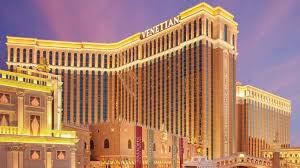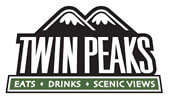Five Star hotel interview? How to be a Five Star candidate.
 If you’ve been working in the hotel industry for a while, you’ll be looking to further your career at some point, and what better way than to make the step up to a five star hotel? Jose Ruiz, HR manager at The Berkeley Hotel, gives some ideas on what to expect when you interview for a five star hotel position.
If you’ve been working in the hotel industry for a while, you’ll be looking to further your career at some point, and what better way than to make the step up to a five star hotel? Jose Ruiz, HR manager at The Berkeley Hotel, gives some ideas on what to expect when you interview for a five star hotel position.
Q: How different is the interview process for the service industry as opposed to, say, an office job?
A: I wouldn’t say it’s completely different, although in the service industry the emphasis is firmly on personality and behavior. At our hotel, the recruitment process involves various stages, including interviews, a competency-based questionnaire and, for some positions, a technical or practical trial.
The process may vary slightly depending on the position applied for. For example, an application for a management position may involve up to five personal interviews. While this may sound excessive to some, we believe that it is critical to find the right person. This process also gives the candidate the opportunity to meet various people within the organisation and gives us the chance to understand the candidate’s values and motivation.
Q: What do you look for first when you get a resume?
A: Generally speaking, I look for experience first, although qualifications are important and would account for about 40% of my decision. Specifically, I look for experience in a similar environment where customer service (both towards guests and staff) is evident. I need to also see a commitment to a career in hospitality, such as a relevant hospitality qualification may indicate.
Finally, we invest heavily in learning and development initiatives that aid our succession planning strategy; therefore candidates who can demonstrate a focus on their own personal development and career progression are more likely to do well during the interview process.
Q: When you like a candidate’s resume, what process do you go through?
A: I often carry out an initial screening interview by telephone, which will help me assess the candidate’s communication skills and also understand the candidate’s interest in working for our hotel. During this initial chat, I also try to find out about the reasons why the candidate may want to leave their current employment. Provided that the telephone screening goes well, I then invite the candidate to attend formal interviews in the hotel.
Q: And what happens next?
A: I confirm the date and time of the interview and invite the candidate to complete an online competency-based questionnaire in advance. The questionnaire is yet another recruitment tool used to assess candidates against an agreed set of job competencies.
Q: What sort of questions do you ask at this stage?
A: During the personal interviews, we rely quite heavily on behavioral questions that help us understand how the candidate behaves in certain situations. Competency-based interviewing goes by the principle that “past behavior is a good indicator of future behavior”. It goes without saying that I also look for candidates who demonstrate high levels of customer care.
Q: So can you run me through what happens on the first interview?
A: The first interview would normally be with a member of the HR team and will start by engaging the candidate in conversation to put them at ease, followed by an overview of the interview process. This helps the candidate see the bigger picture and also helps us set expectations regarding both the recruitment process and the timescale.
The next part is the interview. As I explained earlier, we rely quite a bit on competencies and many of the questions will be based around the candidate’s previous behavior when dealing with specific situations. This initial meeting will normally last between half an hour to one and a half hours, depending on the position being applied for.
Q: If they’re successful at the first interview, what happens at the second?
A: The second interview would normally be with the manager they would be reporting to. This interview will go into more detail about the specific competencies and skills relevant to the department. For example, candidates may be asked to critically evaluate the processes they’ve used in the past. They may also be asked for examples of situations that they think demonstrated great service.
For certain positions we also want to understand the candidate’s level of technical knowledge, whether this may be the check-in process in front office, the service steps in food and beverage, or existing skills as a trainer.
For us, it’s also important to understand why the candidate wants to work at the hotel. We are incredibly passionate about our product and people and we want to make sure that future recruits are too. If they simply want a job, they will probably not be successful, as we’re looking for people who can add to and integrate with the culture at our hotel. I’m looking for someone who is dedicated and enthused by the hospitality industry in general but who also shares the strong values of our organisation. We’re looking for what we call “a Hotel person”.
Back







